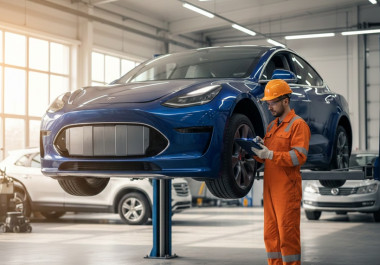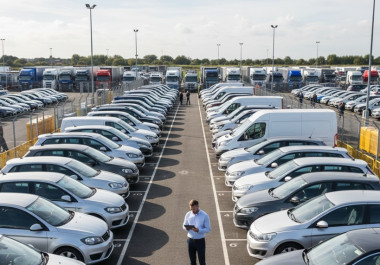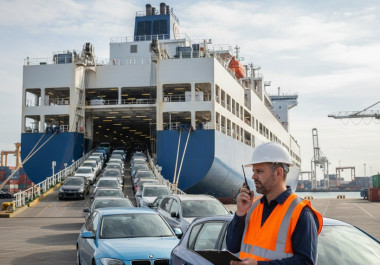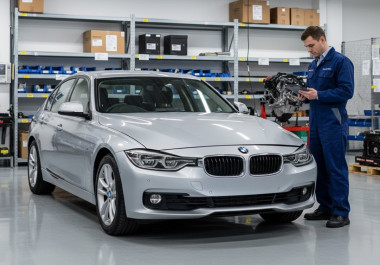Things have been a bit mad in the motor trade since Brexit, haven't they? The old, comfortable way of doing things has gone right out the window. For anyone having a look at the UK car auction scene, it's a completely new game now. You've got incredible bargains hiding in plain sight, but also a few nasty traps for the unwary.
Auction sites like RAW2K have had to be on their toes to keep up with the transformed Brexit car market. Everything's different, from where the cars are coming from to what they fetch on the day. So, let's pop the bonnet on Brexit automotive auctions and have a proper look at what’s what. It’s not as tricky as it sounds once you know the score.
So, What Are the New Rules of the Game?
You remember how it used to be, right? A lorry loaded with decent German or French motors could just roll off the ferry with less paperwork than your weekly shop. Well, that’s a distant memory. Now, the whole process is tangled up in red tape, extra checks, and rules so complicated they can bring the whole operation to a standstill.
In plain English, that means more hassle and more money. Every single car coming in from the EU has to be cleared by customs. That means queues at the ports, and any trader worth their salt will tell you a car stuck in a queue isn't earning its keep. This headache has forced every auction house to think much harder about where it gets its stock from.
How Brexit Has Hit Prices and Parts
When the supply chain gets a proper squeeze, you feel it in your pocket. It's the oldest rule there is: when something's harder to come by, the price creeps up. With fewer nearly-new cars zipping over from the continent, the demand for good, clean, UK-sourced motors has gone through the roof. And yes, that has definitely pushed up the prices of used British cars.
It’s not just the cars, either. It’s the bits you need to keep them running. A lot of cars built here still use parts from the EU. A delay getting a clutch from Germany or a sensor from France means a car is sitting in a workshop instead of being prepped for auction. This is why a solid service history and a clean bill of health are worth their weight in gold now. You absolutely have to know what you’re bidding on.
Finding a Cracking Deal in the New Market
But here’s the good bit: big changes always mean big opportunities. A few months back, a perfect example turned up at a mid-week auction: a tidy, three-year-old, left-hand-drive Peugeot. A couple of years ago, the traders would have been fighting over it. This time? You could hear a pin drop. The bidders were clearly nervous about the import paperwork. One young lad, who’d obviously done his homework, got it for an absolute song.
It just goes to show, in today’s Brexit car market, knowing your stuff is a massive advantage. While everyone else is hesitating over European cars, the lack of competition can land you a bargain. On the other hand, it also means that a solid, UK-sourced car with a big folder of receipts is an even safer bet than it used to be.
How the Auction Game Has Changed for the Better
The heart of the auction is the same, but the best auction houses have had a complete rethink. The biggest change, hands down, has been the massive shift to doing everything online. It was happening anyway, but Brexit gave it a proper shove. A good online car auction today means you get:
-
The Full Story: You see everything now. Listings are crammed with photos, walk-around videos, and proper reports on the car's past, its condition, and its import status.
-
A Bigger Crowd: You’re not just bidding against the fellas in the room. A national audience means sellers are getting the true market price for their motors.
-
No Nasty Shocks: All the fees, VAT, and import stuff are laid out in black and white. It takes the guesswork out of it, which is exactly how it should be.
The website is the new forecourt, simple as that. It’s what’s keeping the market buzzing and open for everyone.
A Bit of Advice for Buyers and Sellers
To do well now, you just need to be a bit smarter. It’s all common sense, really.
If You're Buying:
-
Check the History: Get nosy about the car’s origin. If it’s a recent EU import, find out its status. A quick browse through the vehicle auctions will show you the kind of paperwork you should be seeing.
-
Do Your Sums: The price it sells for isn't the final price. Add on transport, registration costs for imports, and VAT before you even think about raising your hand.
-
Look for Local Gems: Don’t forget the cracking value in UK-sourced cars. With no cross-channel faff, the whole thing is a lot less stressful.
If You're Selling:
-
Be Straight Up: Honesty is your best friend. If you’re selling an imported car, have all the documents ready. It gives people the confidence to bid.
-
Price It to Go: Know what your car is worth today. See what similar models are making. Services that auction your car can give you a valuation based on what’s happening in the market right now.
-
Make an Effort: A clean motor with a stack of receipts will always get more looks and better bids. It’s that simple.
So, What's Next for UK Car Auctions?
The dust from Brexit is far from settled, and the motor trade will keep evolving. But the buzz of the auction, the thrill of the bid and the satisfaction of a bargain is alive and well. There are just a few more hoops to jump through.
These new challenges have forced the industry to be more upfront and efficient. For the average person, that's a good thing. The opportunities haven't gone away; they’ve just moved. Go in with your eyes open, do your homework, and you’ll be in a great position to grab a deal.
If you get stuck, just ask. The people at the auction houses have seen it all by now. You can usually find what you need in a good help section or by getting in touch. Happy bidding




